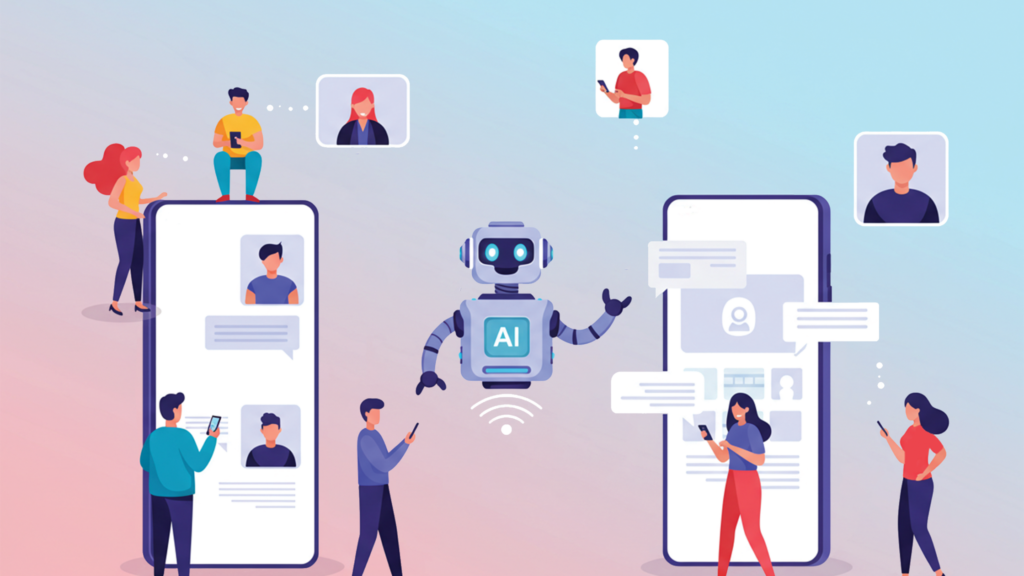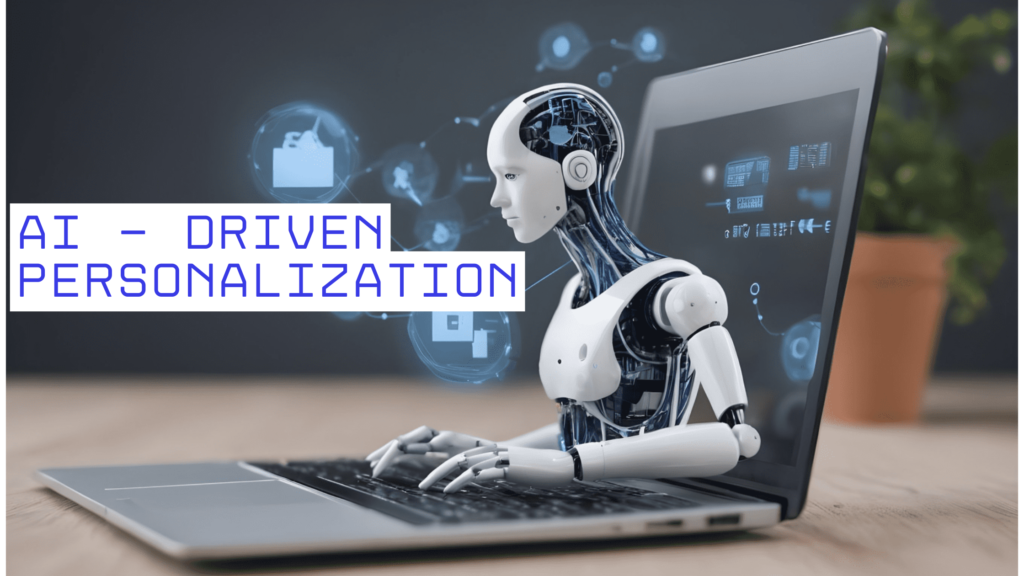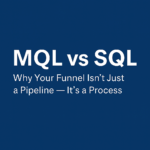In today’s digital-first landscape, personalization is no longer a luxury-it’s an expectation. Customers demand experiences tailored to their unique preferences and behaviors, and brands that deliver on this front are reaping the rewards. At the heart of this revolution is artificial intelligence (AI), which is enabling marketers to create hyper-personalized, real-time interactions at a scale never before possible. This blog will explore the depths of AI-driven personalization in marketing, its mechanisms, benefits, challenges, real-world applications, and how you can harness its power for your brand in 2025 and beyond.
What Is AI-Driven Personalization?
AI-driven personalization refers to leveraging artificial intelligence, machine learning, and advanced data analytics to deliver individualized experiences, content, product recommendations, and communications to users in real time. Unlike traditional marketing segmentation, which relies on broad demographic or behavioral categories, AI analyzes vast and complex data sets to make micro-level decisions-offering each customer a unique journey.
For example, an e-commerce platform powered by AI can recommend products based on a user’s browsing history, purchase patterns, and even real-time behavior. Similarly, a returning customer might receive a personalized email with curated content and exclusive offers tailored to their interests and previous interactions.
Why Personalization Matters More Than Ever
The digital marketplace is saturated, and consumers are bombarded with content and offers daily. Personalization helps brands cut through the noise and connect with customers on a deeper level. According to industry research:
- 91% of consumers are more likely to shop with brands that recognize, remember, and provide relevant offers and recommendations.
- 74% of online customers get frustrated when website content isn’t personalized.

Key Drivers of the Personalization Imperative
- Information Overload: Customers are overwhelmed by generic content. Personalization helps brands deliver what matters most to each individual.
- Rising Expectations: Platforms like Netflix, Spotify, and Amazon have set a high bar for hyper-personalized experiences, making them the new standard.
- Business Impact: Personalized marketing drives higher engagement, conversion rates, and customer loyalty, translating directly into increased revenue and brand equity.
How AI Powers Personalization
AI’s transformative power in marketing personalization lies in its ability to process and analyze massive amounts of data from multiple touchpoints, predict behavior, and automate tailored experiences at scale.
Core AI Technologies in Personalization
- Natural Language Processing (NLP): Understands user intent in search queries, reviews, and chats, allowing for more relevant content and responses.
- Recommendation Engines: Suggest products, content, or offers based on real-time and historical user data.
- Predictive Analytics: Anticipates customer needs and behaviors, enabling proactive engagement and resource allocation.
- Chatbots and Virtual Assistants: Deliver real-time, personalized support and recommendations, enhancing customer satisfaction and efficiency.
- Automated Content Optimization: AI determines which type of content (videos, blogs, products) resonates best with different users, optimizing delivery for maximum impact.
The Personalization Process
- Data Collection: AI gathers data from every customer interaction-website visits, app usage, purchase history, social media activity, and more.
- Behavioral Analysis: Machine learning algorithms identify patterns and preferences within the data, segmenting audiences with greater precision than manual methods.
- Real-Time Decision Making: AI instantly adapts content, offers, and recommendations based on current user behavior and context.
- Automated Campaign Execution: Marketers can personalize experiences for millions of users simultaneously, something impossible to achieve manually.
Key Benefits of AI-Driven Personalization
1. Enhanced Customer Experience
AI-driven personalization leads to more relevant, timely, and engaging customer interactions. Customers feel understood and valued, which increases satisfaction, loyalty, and lifetime value.
2. Increased Conversion Rates
Personalized calls-to-action, product displays, and content tailored to the user’s journey significantly boost conversion rates. AI ensures the right message reaches the right person at the right time.
3. Improved Marketing Efficiency
AI automates labor-intensive tasks such as A/B testing, content delivery, and audience targeting, allowing marketers to focus on strategy and creativity.
4. Real-Time Adaptation
AI processes and responds to data in real time, providing instant, relevant responses to user behavior and external events.
5. Higher ROI
Personalized campaigns powered by AI often deliver two to three times the return on investment compared to generic campaigns, making marketing budgets more effective.
Real-World Applications & Case Studies
Amazon
Amazon’s AI-powered recommendation engine is responsible for 35% of its total revenue. The platform personalizes homepages, emails, and even pricing, resulting in higher engagement and sales.
Netflix
Netflix uses AI to recommend movies and shows, with over 80% of content watched being algorithmically suggested. This keeps users engaged and reduces churn.
Starbucks
Starbucks’ AI-driven loyalty app personalizes drink recommendations, offers, and store suggestions based on customer preferences and purchase history.
Sephora
Sephora leverages AI to recommend products tailored to individual skin tones, preferences, and past purchases, enhancing the shopping experience and fostering loyalty.
Tools and Platforms Enabling AI-Driven Personalization
| Tool | Key Features |
|---|---|
| Salesforce Einstein | AI-powered CRM, predictive scoring, automated personalization |
| Adobe Sensei | Personalizes content across Adobe Experience Cloud |
| Dynamic Yield | Real-time segmentation, product recommendations, A/B testing |
| Optimizely | AI-based experimentation and personalization |
| HubSpot | Smart content, predictive lead scoring, behavior-based automation |
Key Strategies for AI-Driven Personalization
1. AI-Led Customer Segmentation
AI evaluates large-scale demographic, psychographic, and behavioral data to create sharper audience groupings. This allows marketers to match consumers with the right messaging and reduce acquisition costs.
2. Automated Content Recommendations
Machine learning predicts topics, keywords, and formats that resonate with different segments, ensuring content is always relevant and engaging.
3. Personalized Product Suggestions
AI analyzes purchase history and browsing behavior to make real-time, individualized product recommendations-boosting sales and customer satisfaction.
4. Dynamic Pricing
AI adjusts prices based on demand, inventory, and customer behavior, maximizing revenue and competitiveness.
5. AI-Powered Chatbots
Chatbots provide instant, personalized support and recommendations, improving customer experience and freeing up human resources for complex tasks.
6. Predictive Analytics
AI forecasts customer needs, enabling marketers to anticipate trends, allocate resources efficiently, and optimize campaign timing.
Challenges in Implementing AI Personalization
Despite its transformative potential, AI-driven personalization comes with challenges:
1. Data Privacy and Compliance
With regulations like GDPR and CCPA, brands must be transparent about data collection and usage. Mishandling data can erode trust and lead to legal consequences.
2. Integration Complexities
Integrating AI tools with existing marketing stacks (CRMs, CMS, analytics platforms) can be technically demanding and resource-intensive.
3. Data Quality
The effectiveness of personalization depends on the quality of the data. Inaccurate or incomplete data leads to poor recommendations and missed opportunities.
4. Maintaining the Human Touch
Over-reliance on automation can make interactions feel impersonal. It’s crucial to balance AI-driven efficiency with authentic, human engagement.
5. Cost and Resource Constraints
Advanced AI platforms can be expensive, and implementation requires skilled personnel, which may be challenging for smaller businesses.
The Future of AI-Driven Personalization in Marketing
Looking ahead, AI-driven personalization is set to become even more sophisticated and adaptive:
1. Hyper-Personalization in Real Time
AI will enable dynamic, 1:1 experiences across every touchpoint-from personalized landing pages to conversational AI and dynamic pricing.
2. Voice and Visual Personalization
With the rise of voice assistants and visual recognition, AI will personalize search and shopping experiences using voice commands and images.
3. Emotion AI
AI will increasingly interpret user sentiment through tone, facial expressions, and text, allowing for emotionally intelligent personalization.
4. Privacy-Preserving Personalization
Technologies like federated learning and differential privacy will allow brands to personalize experiences while respecting user data and privacy.
Best Practices for Implementing AI Personalization
- Start Small and Scale: Begin with manageable projects like personalized email campaigns or product recommendations, then expand as you gain experience.
- Ensure Data Accuracy: Regularly audit and clean your customer data to maintain high-quality inputs for your AI systems.
- Choose the Right Tools: Select AI platforms that align with your business size, goals, and existing technology stack.
- Test and Optimize: Continuously A/B test and refine your AI-driven campaigns to maximize effectiveness.
- Educate Your Team: Invest in training for your marketing and IT teams to ensure they can effectively leverage AI tools.
- Balance Automation with Human Touch: Use AI to enhance, not replace, genuine human interactions. Personalization should feel authentic, not robotic.
Conclusion
AI-driven personalization is not just a trend-it’s the backbone of modern, customer-centric marketing. Brands that embrace AI are delivering more relevant, meaningful, and real-time experiences, resulting in higher engagement, increased conversions, and stronger customer loyalty.
While challenges like data privacy, integration, and maintaining the human touch exist, the benefits far outweigh the obstacles. With the right strategy, tools, and mindset, businesses of all sizes can unlock the full potential of AI-driven personalization and secure a competitive edge in the digital marketplace.
If you haven’t already started integrating AI personalization into your marketing strategy, now is the time. The future belongs to brands that know their customers-and deliver what they want, when they want it, every time.
FAQs on AI-Driven Personalization
Q1. Is AI-driven personalization suitable for small businesses?
Yes. Many AI tools offer scalable solutions for small and mid-sized businesses. Even simple integrations like personalized emails or basic product recommendations can make a significant impact.
Q2. Does AI personalization invade customer privacy?
Not if implemented ethically and in compliance with data protection laws. Transparency and user consent are essential for building trust.
Q3. How much does it cost to implement AI-driven personalization?
Costs vary widely, from free or entry-level plans to enterprise-grade solutions. ROI depends on effective integration and ongoing optimization.
Q4. Can AI personalize content across multiple channels?
Absolutely. AI can personalize experiences on websites, mobile apps, emails, and even in-store interactions when integrated correctly.
Q5. How long does it take to see results from AI-driven personalization?
Depending on the use case, businesses can start seeing improved engagement and conversion rates within a few weeks to a few months.
For regular Digital Marketing Updates, follow Popnewsblend.
read about The Ultimate Guide to Best AI Tools for Digital Marketers in 2025.

Hi, I’m Prashant Jain — a curious soul, storyteller, and content creator at heart.I’ve always been drawn to the world of entertainment, travel, sports, health & lifestyle — not just as a writer, but as someone who genuinely lives these experiences. Whether I’m binge-watching the latest OTT series, exploring offbeat spiritual destinations in India, or diving deep into wellness routines and cricket match insights, I love sharing what I discover with like-minded readers.
PopNewsBlend is my way of blending personal journeys with meaningful stories — ones that inform, inspire, and keep you ahead of the curve. Everything I write comes from real observations, hands-on experiences, and a deep passion for understanding the world around us.
Discover more from Popnewsblend
Subscribe to get the latest posts sent to your email.








Pingback: Best AI Tools for Digital Marketers in 2025